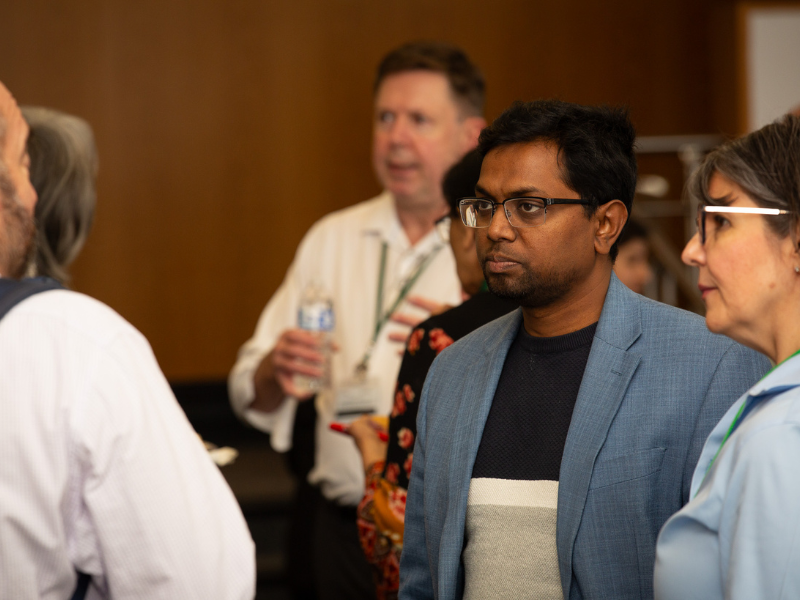Feeling the heat: Introducing Mostafijur Rahman
The first thing Mostafijur Rahman, assistant professor of environmental health sciences, noticed upon arriving in New Orleans was his sweat. After nearly a decade of living in New York and California, he felt like he was back home in his native Bangladesh. “I don’t think I had sweated in seven years,” he says, laughing.
But when it comes to climate change and health, the similarities between Bangladesh and Louisiana’s Gulf Coast are no laughing matter. Intense heat, high relative humidity, and heavy annual precipitation are the norm, as are tropical storms and flash flooding. Add the ongoing effects of widespread poverty, crumbling infrastructure and environmental pollution to the mix and it becomes much harder for people in these regions to get and stay healthy.
Rahman hopes to change that calculus. An environmental health data scientist by training, his groundbreaking work at the intersection of public health and climate science began in Dhaka, Bangladesh with a novel request for government health data, which required building trust among stakeholders on how the data would be used and for what purposes. After many rejections, the data was eventually handed over as thousands of pages of handwritten records, requiring a massive digitization effort before any of it could be used. Relying on multidisciplinary approaches in exposure assessment and environmental epidemiology, he evaluated the impact of environmental exposures on various health outcomes, including neurodevelopment, mental health, and cardiorespiratory morbidity and mortality. The work yielded significant evidence on the negative health effects of air pollution sources and compositions, the simultaneous occurrence of high heat and air pollution, temperature increases, role of humidity in the heat effects, and temperature variability.
Today, Rahman is applying data science techniques, including machine learning and advanced statistical modeling, to examine the spatial temporal trend of environmental data and its relationship with adverse health outcomes.
Most climate change studies are being conducted in developed countries, like the US and Europe, which have a much different context than developing countries, he says, pointing out that only 1% of households in Bangladesh have access to air conditioning. Older adults and people with comorbidities (cardiovascular disease, diabetes, cancer), pregnant women, and children are all more vulnerable to climate change, especially those living in under-resourced communities.
“We need more studies conducted in places like Bangladesh,” he says.
Rahman is currently working with Dean Thomas LaVeist and Department of Environmental Health Sciences Chair Melissa Gonzales to establish a major research program here on the Gulf Coast, focusing on air pollution and climate change exposures, public health, and environmental justice, and looks forward to contributing to evidence-based policy-making and actionable public health interventions.
Rahman earned his PhD in Environmental Health Sciences from New York University School of Medicine and completed postdoctoral training at the University of Southern California. His work has been featured in prestigious news outlets such as Time Magazine, NBC News, Reuters, TODAY, Global News, The Hill, US News and World Report, Scientific American, and The Conversation.
Rahman remains optimistic about our ability to leverage large longitudinal environmental health data to develop data driven solutions for climate and health, believing that with the help of colleagues working in other disciplines (Architecture, Engineering, Law, Medicine, and Social Work) achieving optimal health and well-being for all will be no sweat.
Courtesy Advancement Communications

